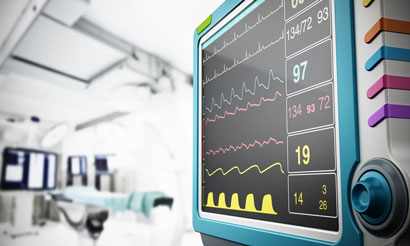Aptar Pharma & Kali Care to develop medication monitoring tech for trials
Posted: 8 May 2017 | | No comments yet
Aptar Pharma’s dispensing technologies combined with Kali Care’s smart sensors, data analytics and cloud services will make clinical trials more efficient.


Aptar Pharma and Kali Care have entered into a partnership in order to address the challenge of monitoring adherence in ophthalmic clinical trials. The combination of Aptar Pharma’s ophthalmic device expertise, and Kali Care’s ground-breaking digital monitoring system for ophthalmic medications, is likely to have a significant impact in reducing the costs and complexity of ophthalmic clinical trials.

Kali Care, a Silicon Valley-based technology company, provides a sensor technology which allows clinicians to replace adherence assumptions in clinical trials with collected real-time data.
This represents the latest step for Aptar Pharma in the development of drug delivery devices and collaborations in the connected health space.
Partnering to fund clinical trials can save companies money and widen the number of therapies.
Combining the Silicon Valley spirit with proven expertise in drug delivery systems
Aptar Pharma has been setting the standard for the drug delivery industry for decades. This strategic collaboration once again underlines the company’s continuous efforts in breaking new ground in innovative healthcare technologies.
Sina Fateh, MD, Founder and CEO of Kali Care, explained that because Aptar Pharma is well-respected for its proven regulatory expertise, this will help his company move forward through approval and compliance processes.
Aptar Pharma’s ability to support complex projects and meet the challenging and changing regulatory requirements was recently demonstrated by their collaboration with Allergan on launching the first FDA-approved prescription preservative-free ophthalmic multidose product (Restasis MultiDose).
Meeting the needs of patients and clinicians
Using eye drops as a drug delivery system has its own set of challenges which must be recognized and addressed at the clinical level. Clinical trials benefit from more accurate and timely data collection and management.
For ophthalmologists, the ability to see the medication adherence score of patients with glaucoma is a powerful tool in managing treatment plans.
Enhancing clinical information
Kali Care has developed the first digital monitoring system for ophthalmic medications. Kali Care’s monitoring technology integrates smart sensors, data analytics and cloud services.
With soaring clinical trial costs and complexity, the biopharmaceutical industry is constantly seeking new approaches to improve efficiency and productivity. In clinical trials, the Kali Care system replaces usage assumptions and self-reporting related to medication adherence. This can result in shorter and more efficient clinical trials. The Kali Care Adherence Score provides critical information for explaining the incongruity between recommended treatment and actual treatment outcomes.
Staying ahead of the market
Combined with the recent breakthrough of Aptar Pharma’s ophthalmic drug delivery systems, Kali Care’s revolutionary sensor technology opens new opportunities for the monitoring of patient adherence.
In a joint statement, Salim Haffar, President of Aptar Pharma, and Sina Fateh, MD, highlighted the advantages associated with combining unrivalled microbiological safety and revolutionary sensor technology, “Clinicians are now able to rely on objective and accurate data.”
“Aptar Pharma’s leading dispensing technologies combined with Kali Care’s smart sensors, data analytics and cloud services will help make clinical trials more efficient and effective.”
“This allows ophthalmologists to improve risk strategies to distinguish patients requiring minimal support from those who require closer monitoring.”









